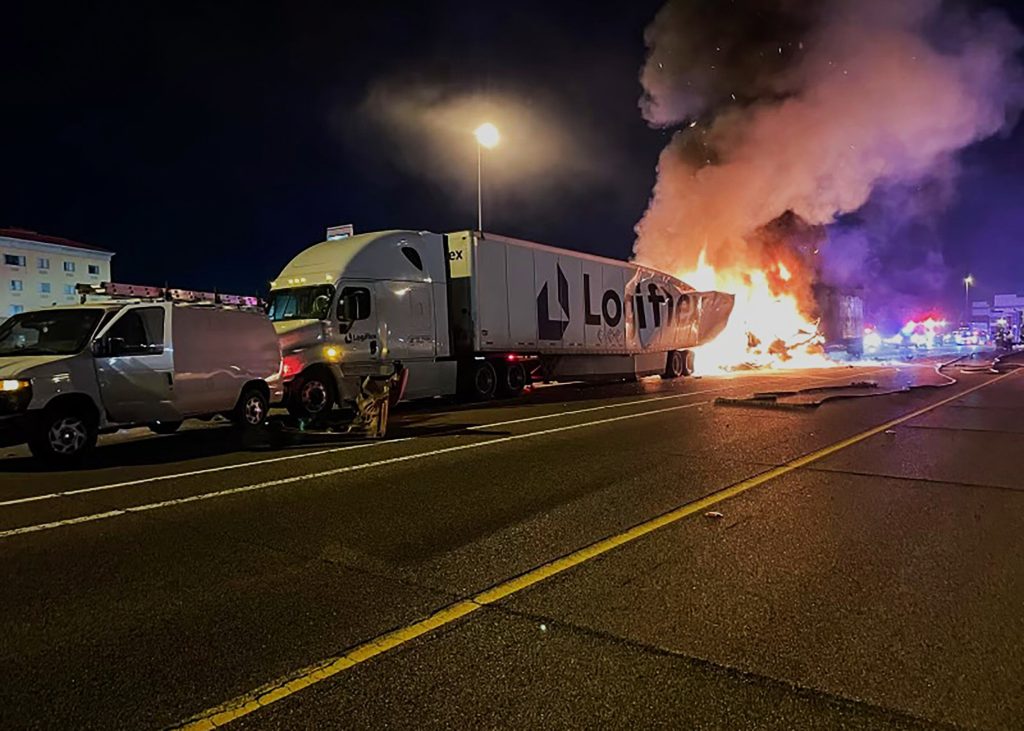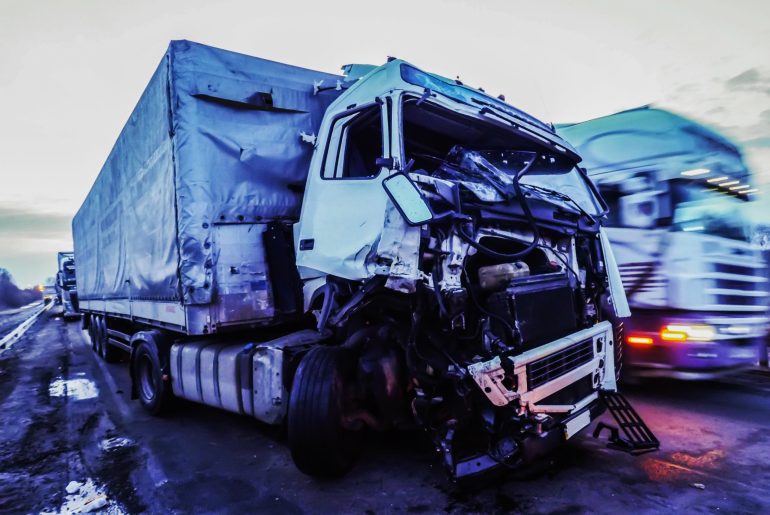When it comes to understanding the intricacies of Truck Accident lawsuits, there are several pivotal points that everyone should be aware of.
- Firstly, the timing of a settlement in such cases is highly variable. It can occur almost immediately following the accident or might not be reached until the final moments before a trial’s verdict is announced.
- Secondly, the financial compensation awarded in these lawsuits can vary widely, reflecting the severity and circumstances of the crash involving semi-trailers or other large commercial vehicles.
- Lastly, it’s crucial to know that there is a legal requirement for trucking companies to have a minimum of $750,000 in liability insurance coverage.
This information is essential for anyone navigating through a truck accident case, as it can significantly influence the strategy and expectations of those involved.
When do truck accident settlements happen?
It’s crucial to understand that settlements in truck accident cases can occur at any point from right after the accident to just before a jury verdict is announced. Remember, if you’re approached by an insurance company representative with a settlement offer in the initial days following the accident, agreeing to it will conclude your case.
Accepting such an offer means relinquishing your right to pursue further legal action, effectively closing the case before it may fully unfold. This knowledge is vital for anyone involved in or affected by a truck accident, ensuring they’re aware of how early decisions can significantly impact the outcome of their case.
What is the latest a settlement can happen?
The utmost limit for a settlement to be proposed and agreed upon in truck accident lawsuits is immediately before the verdict is announced by the jury, indicating the case proceeded to trial without reaching an out-of-court settlement.
Settlements in truck accident cases can occur relatively quickly, either following the lawsuit’s filing or once an attorney-client relationship is established with a qualified personal injury lawyer. These actions signal to insurance companies that the plaintiff understands their rights and is prepared to assert them, prompting insurers to offer fair settlements upon realizing they must contend with legal representation. Yet, financial necessities might force some to accept earlier, potentially less advantageous settlements. Aware of this, some insurance companies may intentionally prolong proceedings to heighten financial distress, impacting the settlement outcome.
What is the average settlement amount for a semi-truck accident?
Determining an “average” settlement amount for semi-truck accidents is challenging due to the vast variability in cases, with settlements spanning from several thousand dollars to more than $10 million. Each trucking accident is unique, making the concept of an average settlement misleading.
The broad spectrum of settlement figures is influenced by the variety of legal damages claimable if the case proceeds to trial. Defendants’ offers for settlement are often based on the anticipated jury verdict they could face in court, factoring in the extensive range of potential damages.
Recoverable legal damages from defendants may include medical expenses, lost wages and future earning capacity, property damage repair or replacement costs, pain and suffering, support and funeral expenses in fatal accidents, loss of consortium, and possibly punitive damages.
Shared fault in an accident impacts the compensation recoverable, with most states reducing legal damages based on the claimant’s fault percentage. This adjustment can significantly decrease the awarded compensation. Moreover, in some jurisdictions, if you are primarily at fault for the accident, defendants may not be held liable. State-specific shared fault laws are a critical aspect influencing the outcome of a case.

What other factors influence the final settlement?
Numerous elements can significantly impact the settlement value of a truck accident lawsuit, including:
- The permanency of your severe injuries or any resulting physical disfigurement,
- The likelihood that your injuries will hinder your ability to earn income in the future,
- Your age,
- Your level of education and occupation,
- The potential for your spouse, children, or other relatives to file a loss of consortium claim,
- The conduct of the trucking company prior to the accident, and
- The degree of negligence exhibited by the truck driver.
An adept attorney specializing in truck accidents and affiliated with a reputable local law firm can highlight how these and other factors may elevate the valuation of your claim.
Do trucking companies have to carry insurance for personal injury cases?
Federal regulations mandate that trucking companies maintain liability insurance to safeguard against financial repercussions in personal injury cases. The minimum required coverage stands at $750,000, a figure established by the Motor Carrier Act of 1980.
The reason this insurance minimum has remained unchanged is that the Federal Motor Carrier Safety Administration (FMCSA) has not updated it since its inception. Inflation has significantly reduced the real value of this amount, making the required $750,000 in liability coverage increasingly insufficient to cover the expenses of moderate, let alone severe, truck crashes.
Given the rising costs associated with severe, life-altering, or fatal accidents, particularly those involving commercial vehicles like large trucks, this sum often falls short of covering the full extent of legal damages incurred in such incidents. When the costs of a truck accident claim exceed this minimum insurance coverage, the trucking company is still liable for the remainder through the doctrine of respondeat superior, if their driver is found at fault.
Should the company’s insurance coverage be exhausted, any additional compensation would need to be sourced directly from the company’s assets. However, if the company’s financial resources are inadequate, victims may not receive the full compensation they are entitled to.




